Clean and disinfect surfaces with this DIY disinfectant spray that makes use of some of the best essential oils for cleaning and disinfecting.
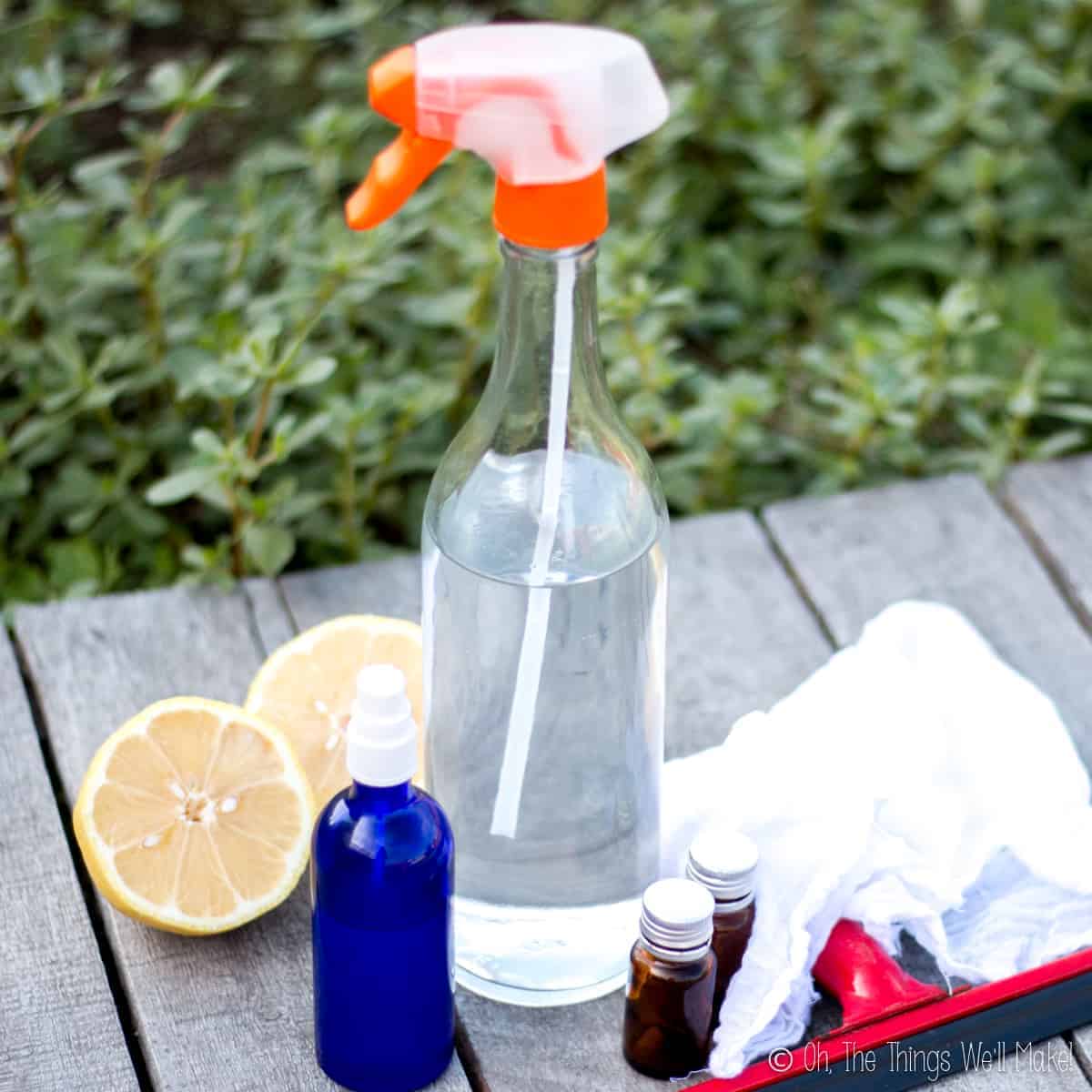
Antimicrobial properties of essential oils
When it comes to making natural cleaning products, essential oils are a great ally. Not only do they add a lovely fragrance, but they also have antimicrobial properties that can help boost the effectiveness of our cleaners and disinfectants.
Essential oils include aldehydes, phenolics, terpenes, and other antimicrobial compounds that make them effective against a variety of pathogens.
Depending on the oil, they can either inhibit bacterial growth or destroy bacterial cells. Some, like sandalwood and vetiver, are more effective against gram-positive bacteria. Others are more effective against gram-negative bacteria. Many (most?) also have antifungal properties.
Pretty much any essential oil has some amount of antimicrobial properties, but some are more popular than others for use in homemade cleaners and disinfectants. Today I’ll concentrate on some of the more popular inexpensive oils that can be used for cleaning and disinfecting.
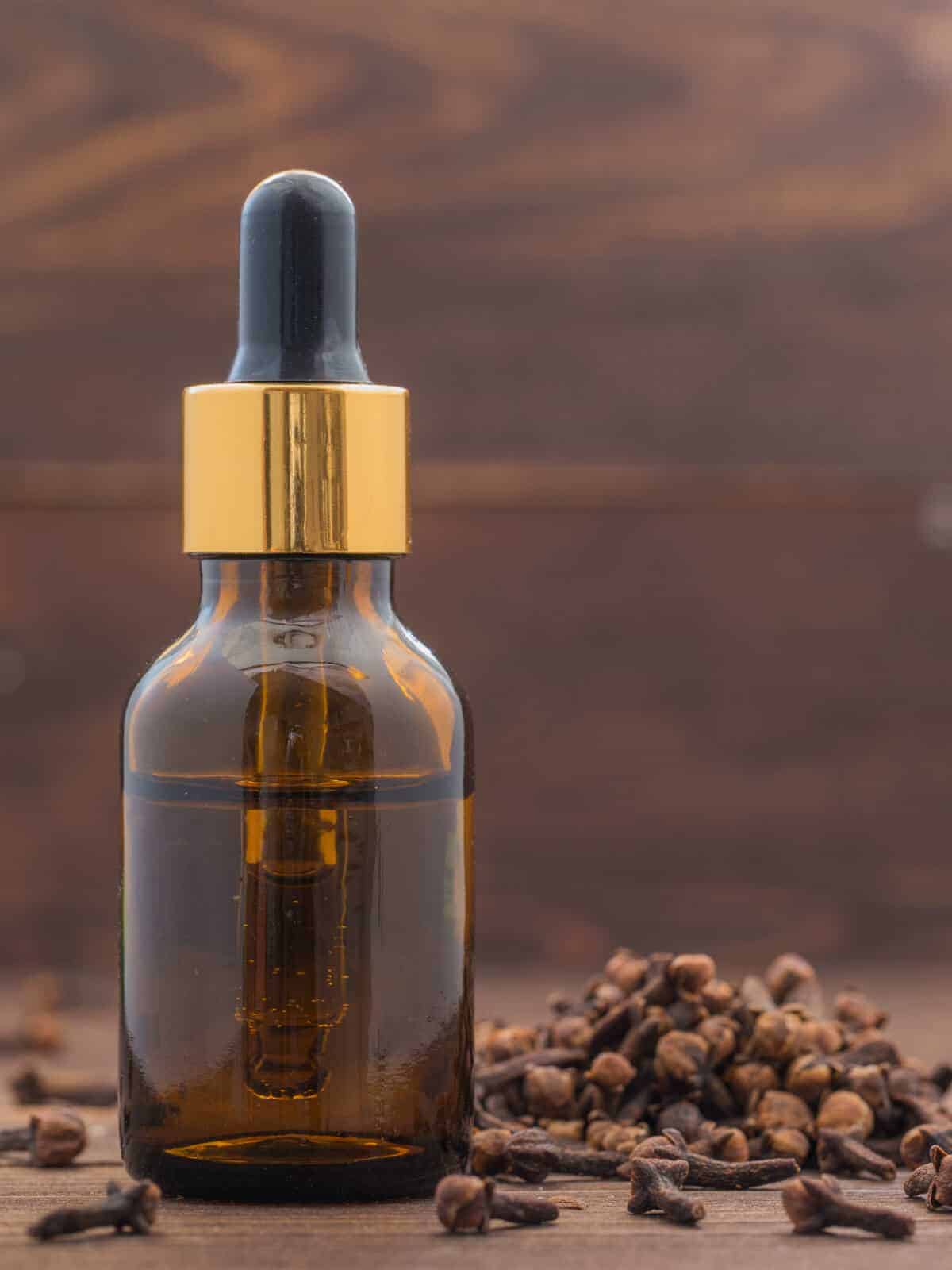
Clove essential oil
Clove essential oil is an effective antibacterial agent. It is between 80 and 95% eugenol, a phenol that interacts with the bacterial cell membrane killing it. Clove essential oil is known to be effective against Salmonella typhi, Staphylococcus aureus, and Pseudomonas aeruginosa.
The eugenol of clove oil is also anti-inflammatory and acts as a mild anesthetic, which is why it is also often used in dental care products. Zinc oxide eugenol is a type of dental cement and temporary filling material.
Clove oil is a great addition to dental care products. You could add it to a homemade toothpaste, homemade tooth powder, and/or a homemade mouthwash.
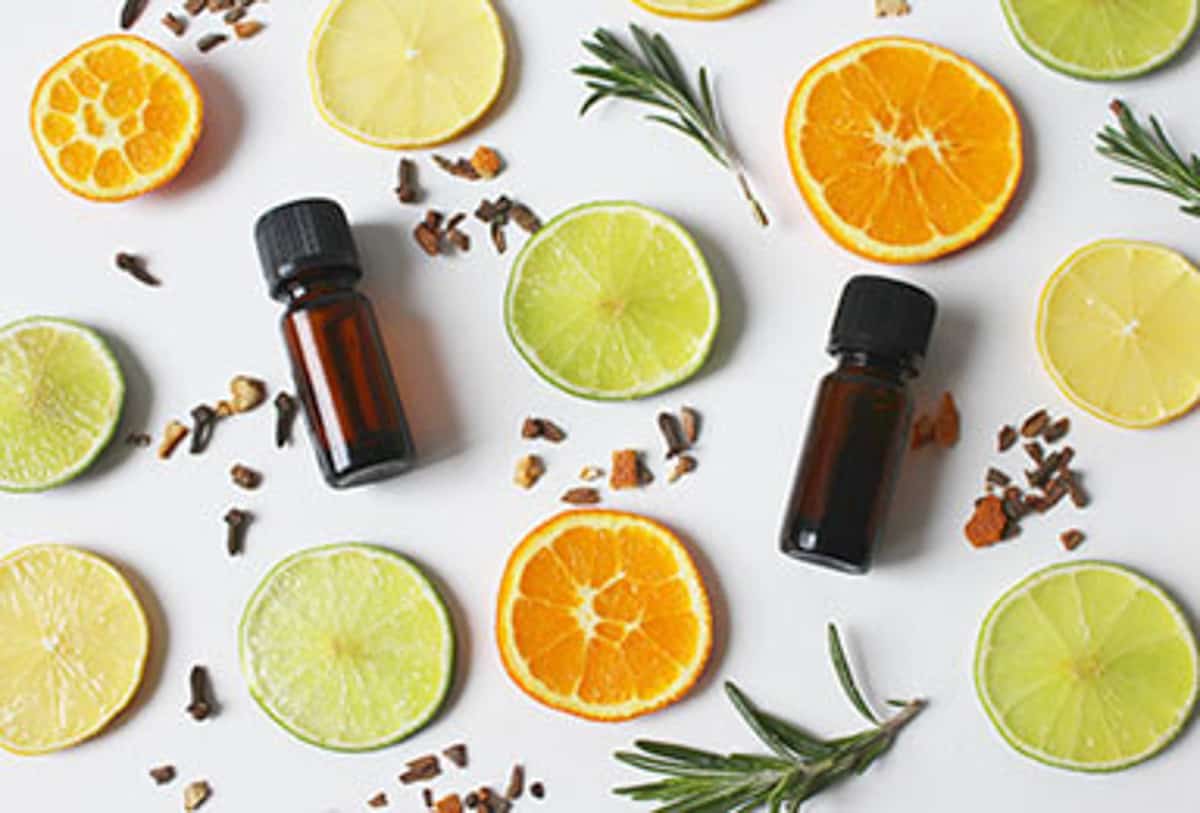
Lemon essential oil
Love the scent of lemons? Lemon essential oil is normally made by cold pressing lemon peels. Other citrus oils like orange oil are made and used in a similar way.
Lemon essential oil is very popular for homemade cosmetics and cleaners, not only because of it’s antibacterial properties. It’s also an inexpensive oil with an uplifting, energizing scent.
- Lemon oil is a great degreaser. I used to use it to help get grease stains out of clothing. (I’ve recently switched to using eucalyptus oil instead, though.)
- It also works wonderfully to remove residual adhesive from stickers and labels.
The scent of lemon essential oil pairs well with many of the other oils, making it a great addition to a homemade cleaner.
Peppermint essential oil
Peppermint essential oil has antibacterial properties against gram-positive and gram-negative bacteria. It’s also antifungal. Plus, it has a lovely and refreshing scent. Because of its refreshing flavor, it’s another oil that is perfect for use in oral care products.
- Use peppermint oil to help disinfect kitchens and bathrooms.
- Peppermint oil is said to deter wasps, spiders, and mice. Add a few drops to cotton balls and place them in areas with pest problems. (Add more oil every few days to renew the scent. (Or add it to a repellent spray.)
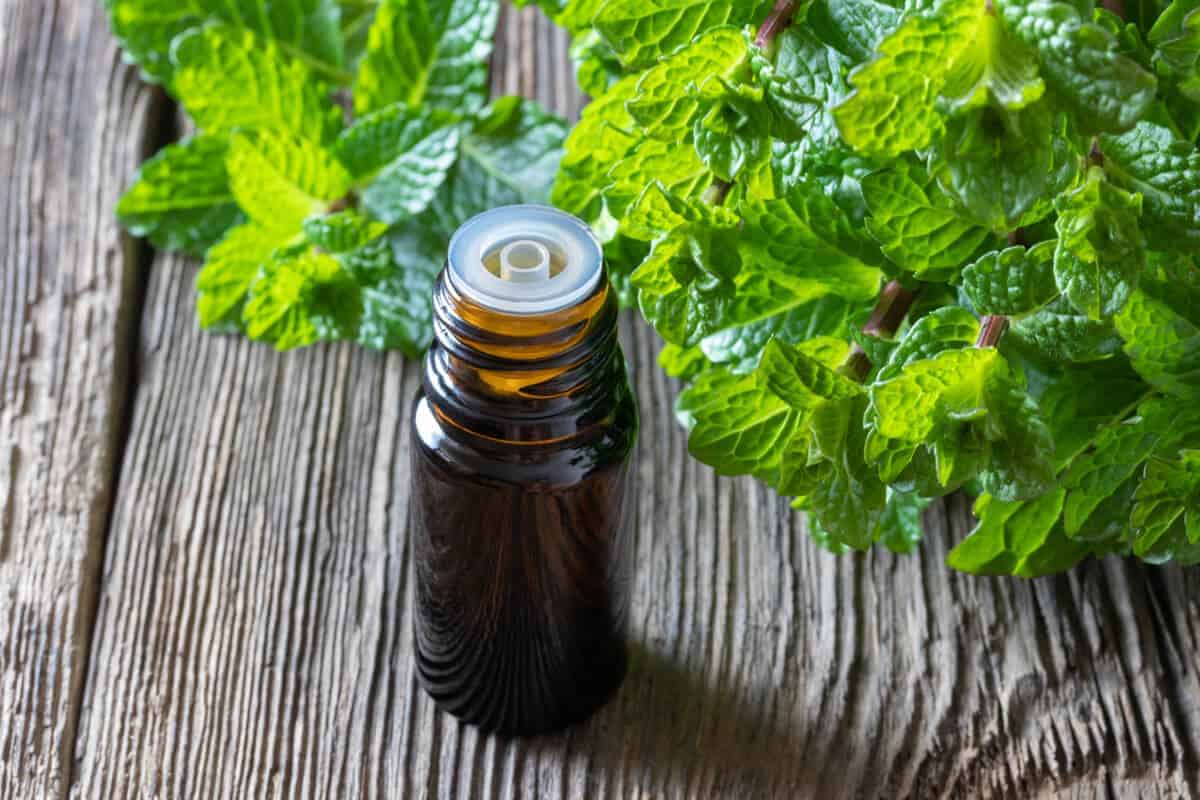
Tea tree essential oil
Because it’s antimicrobial and antiviral, tea-tree oil is an ideal essential oil for your homemade disinfectants.
Tea tree oil comes from the leaves of the Australian Melaleuca tree. Although it is called the “tea tree,” it shouldn’t be confused with the tea leaves we use to make most infusions (or teas). Black, green, and white teas (amongst others) come from the Camellia sinensis plant instead.
A great antifungal, tea tree oil is effective against mold and mildew. It also works well to get rid of musty smells around the home.
Being antiviral, antibacterial, and antifungal, as well as anti-inflammatory, tea tree oil has become one of the most popular essential oils to use in homemade recipes for both home and body.
- Add some tea tree oil and water to a clean spray bottle and spray on mold and mildew around the house (e.g. shower head, faucets). Add vinegar or hydrogen peroxide for a stronger antifungal.
- Remove musty smells from clothes by adding tea tree oil to your laundry detergent.
How to make a disinfectant spray with essential oils
While the antimicrobial properties of essential oils are well known, in order to make a disinfectant spray, we’ll also make use of another antimicrobial, alcohol. Just as alcohol was very important in making an effective hand sanitizer, it’s also very effective as a surface disinfectant.
To be an effective disinfectant against most microbes and viruses, we need to use a minimum of 60% alcohol. 70% is even better.
Materials
- 100g of high proof alcohol (70% or higher)
- 30 drops of essential oils (10 each of lavender, tea tree and lemon)
- Distilled water can optionally be added to 96% alcohol to bring it down to around 70% concentration (Use around 75g alcohol to 25g water.)
- Clean spray bottle
Preparation
Mix together all of the ingredients in a clean spray bottle. Shake the bottle to completely combine the ingredients.
If using 96% alcohol and water, first dissolve the essential oils in the alcohol. Then add the water. The high strength alcohol works as a solubilizer for the oils so that they won’t separate and float on the water. (This works best for 96% alcohol. Lower strength alcohol may not completely solubilize the oils.)
The alcohol also works as a preservative in this recipe. There is no need to add any other preservatives here. (More information about preservatives in my beginner’s guide to natural preservatives.)
Use this natural homemade disinfectant around the home. For best results, use on hard surfaces. Spray the surfaces and then wipe them down with a clean cloth and allow it to dry.
Advice
During the current health scare, we’ve been using this spray to spray down items we’ve brought back from the supermarket before storing them or using them.
Remember that it’s also important to wash reusable shopping bags often. Now, more than ever, consider washing them after each use.
This spray can also be used to sanitize bottles and other containers before using them for your homemade cosmetics.
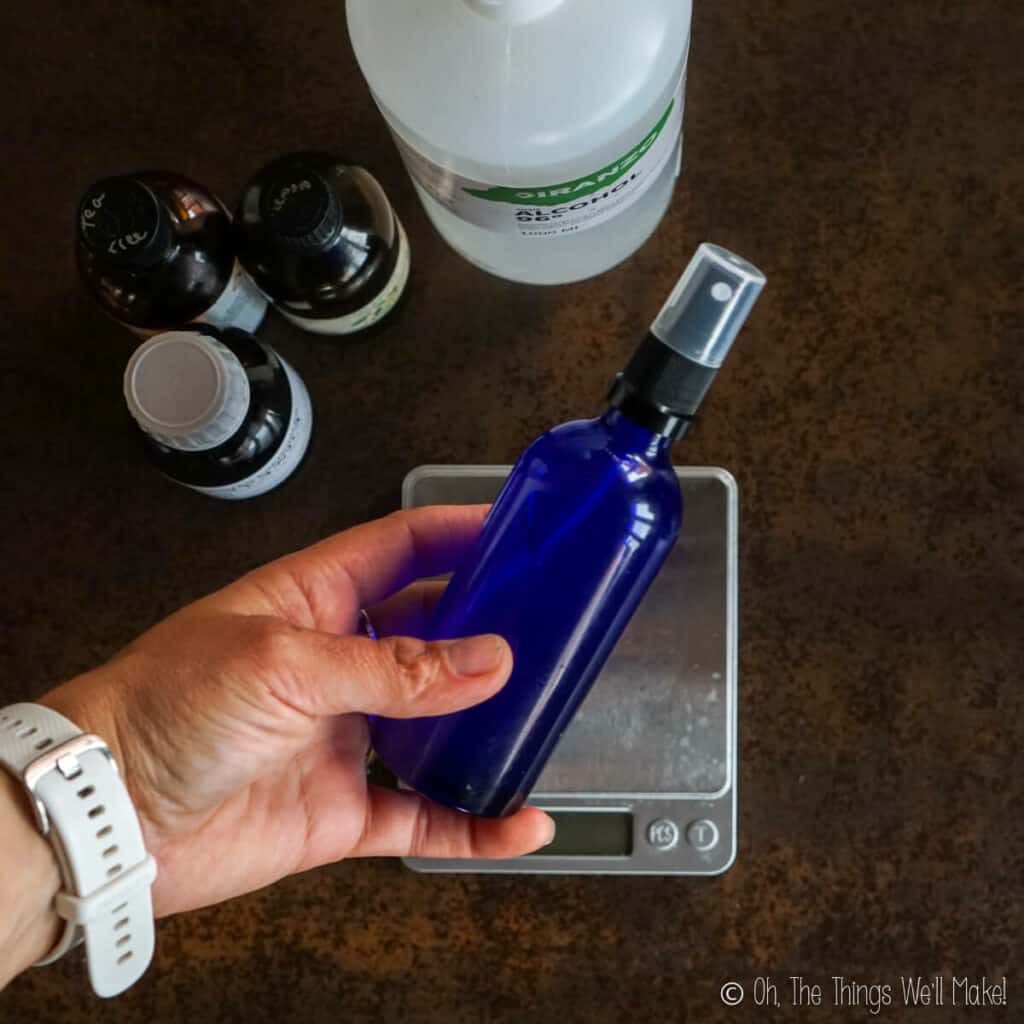
Weigh out and shake ingredients to mix. 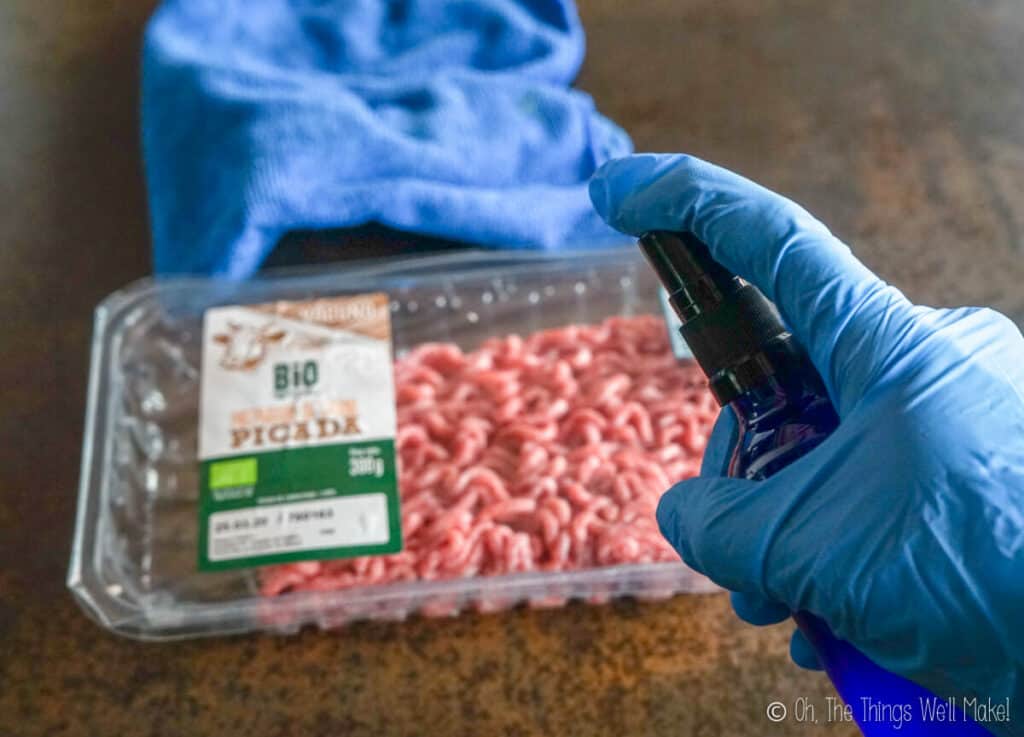
To use: Spray on surfaces and wipe down.
Notes:
You can choose to use one oil or a combination of several oils, depending on what you have on hand. I recommend using less expensive oils like tea tree and lemon for cleaning and saving expensive oils like neroli for skincare or haircare products.
Some metals, like aluminum, can react with certain essential oils (especially strong oils like cinnamon). When it comes to blending or storing essential oils, it’s best to use glass.
Because alcohol is flammable, use this spray in well-ventilated spaces and work on smaller areas at a time. Prolonged and repeated use may cause certain rubbers or plastics to discolor, swell, harden or crack.
Warning for pet owners
Certain essential oils, such as wintergreen, oil of sweet birch, citrus oil (d-limonene), pine oils, Ylang Ylang oil, peppermint oil, cinnamon oil, pennyroyal oil, clove oil, eucalyptus oil, and tea tree oil are said to be toxic to cats.
Some oils are also poisonous for dogs. These include cinnamon, citrus, pennyroyal, peppermint, pine, sweet birch, tea tree (melaleuca), wintergreen, and ylang ylang.
Use extreme caution when using those oils around your pets so that they don’t ingest them.
Video
Disinfectant spray recipe
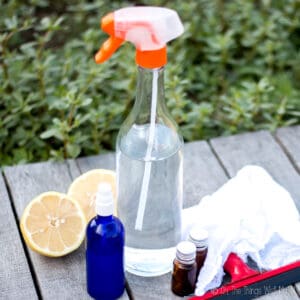
Natural Homemade Disinfectant Spray
Equiment
Materials
- 75 g 96% alcohol
- 25 g distilled water
- 30 drops essential oils 10 drops each of lavender, tea tree and lemon, for example.
Instructions
- Mix together the alcohol and essential oils, shaking or stirring until the oils have dissolved into the alcohol.
- Add water to bring the percentage of alcohol down to around 70%. Mix again to fully combine all of the ingredients.
- Use this natural homemade disinfectant on hard surfaces around the home. Once you spray, wipe down the surface with a cloth and allow it to dry.
Notes
Warning for pet owners:
Certain essential oils, such as wintergreen, oil of sweet birch, citrus oil (d-limonene), pine oils, Ylang Ylang oil, peppermint oil, cinnamon oil, pennyroyal oil, clove oil, eucalyptus oil, and tea tree oil are said to be toxic to cats.Some oils are also poisonous for dogs. These include cinnamon, citrus, pennyroyal, peppermint, pine, sweet birch, tea tree (melaleuca), wintergreen, and ylang ylang.
Use extreme caution when using those oils around your pets so that they don’t ingest them.
If you enjoy making your own cleaning products, why not also try your hand at making your own soap?
This post was originally published on Sept. 21, 2015. It was rewritten in March of 2020 adding more information about the antimicrobial properties of essential oils, adding photos and video, etc.
Related posts
Hand Sanitizer Spray
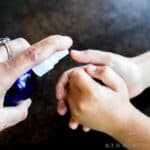
Breathable 3d Face Mask
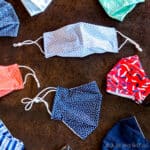
 Español
Español
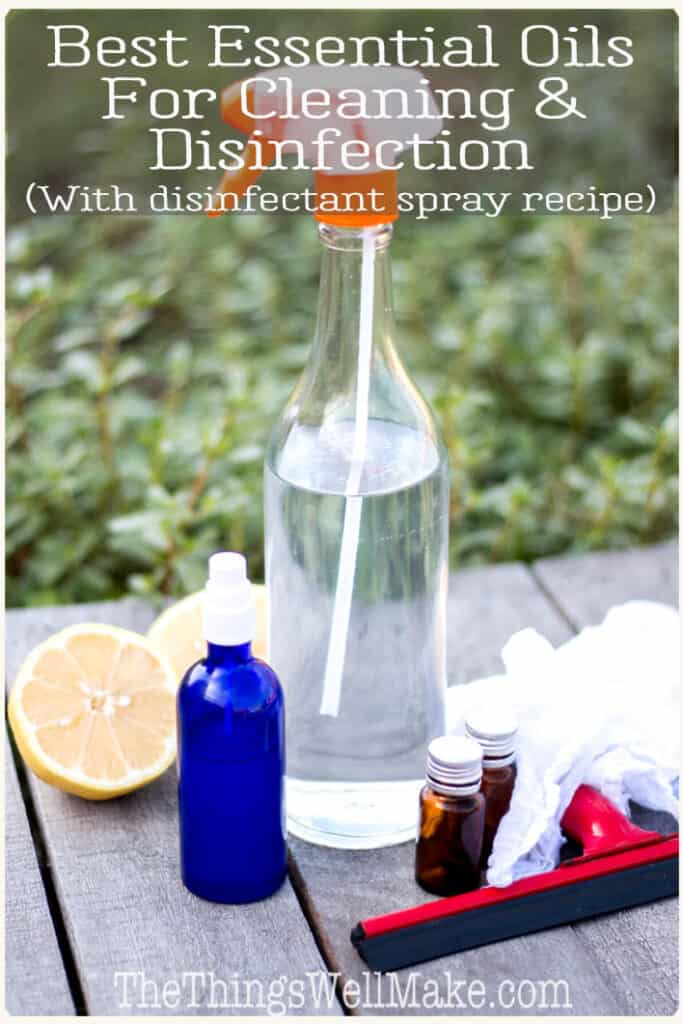
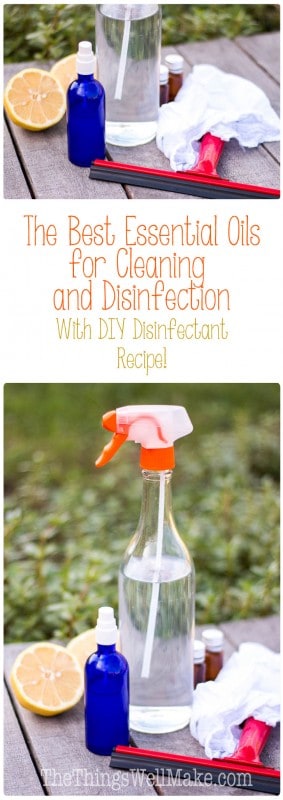
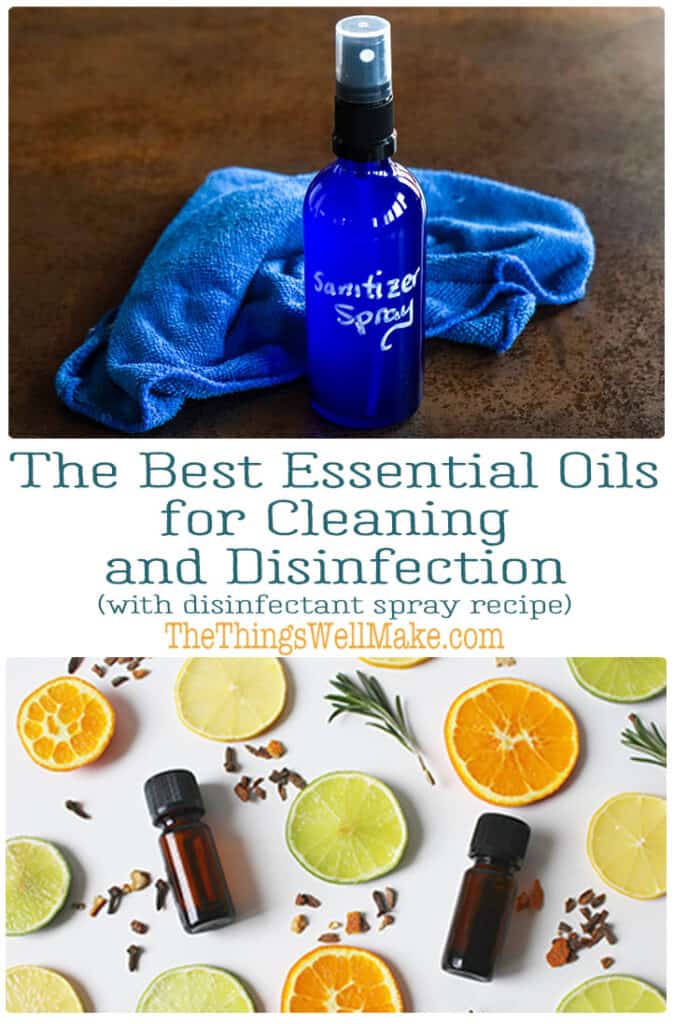
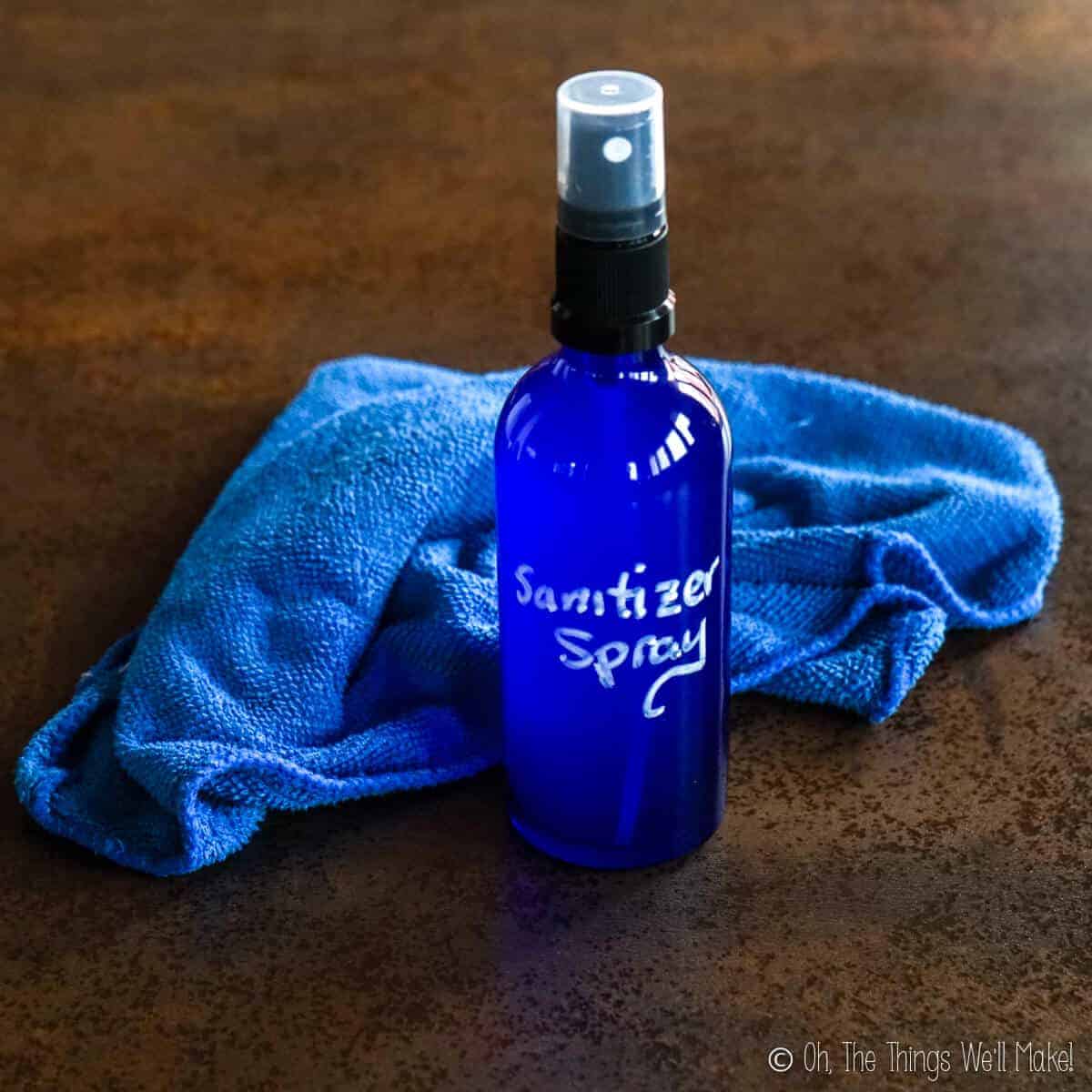
 DIY Hand Sanitizer (That Actually Works!)
DIY Hand Sanitizer (That Actually Works!)
Lucy B.
You should try using Diamond Clear as your alcohol base. It is 190 proof and its ORGANIC! Hooray! 🙂
Tracy Ariza, DDS
Sounds wonderful! I can’t find it here in Spain, sadly, but little by little I’m finding more similar options online.
Elaina
Hi!! I am just stumbling upon your blog, and I am loving it. My little family, husband and myself and trying to do things more cost effectively, and naturally. I am starting with cooking and laundry! Looking for a better fabric softener. Started using vinegar. Sorry to ramble, but my question is where do you get your essential oils?
Extremely thankful!
Elaina
Tracy Ariza, DDS
Hi Elaina,
To be honest, I’m constantly trying out different types- I usually buy them in the same places where I buy my other cosmetic supplies. (I live in Spain, so it is likely different than the places where you buy if you live elsewhere.) 😉
Lin Fox
Can this be used to clean essential oil bottles?
Tracy Ariza, DDS
It should be fine for that purpose, but I generally clean them out as best as I can with soap and hot water and then run them through the dishwasher. In the absence of a dishwasher, you can rinse them with pharmacy-grade alcohol.
Vickie
Can you please convert to cups or spoons for the grams. Thanks
Tracy Ariza, DDS
Hi Vickie,
This doesn’t have to be that precise. I’d just try using around 3 parts alcohol to one part water. This recipe makes around a cup. So, try around ¾cup of alcohol and ¼cup water. The idea is to lower the alcohol content slightly, to just over 70%, because water actually helps the alcohol get into the pathogens to help kill them. It also keeps the product from evaporating as quickly, meaning it has a longer time in contact with any pathogens.
(You could also just use a 70% alcohol instead and not add water.)
Darlene Wynn
I have respriotory lung problems. Are these safe?
Tracy Ariza, DDS
Hi Darlene,
That’s a difficult question to answer. The oils are generally safe and sometimes even used in the treatment of some respiratory problems. That said, they can trigger reactions in some people that are sensitive to the oils which could trigger something like an asthmatic attack or something similar. It will really depend on your sensitivity to the oils. If you notice any negative reaction, I’d suggest stopping your use of them. It’s also probably a good idea to run your questions by your doctor first to be on the safe side.